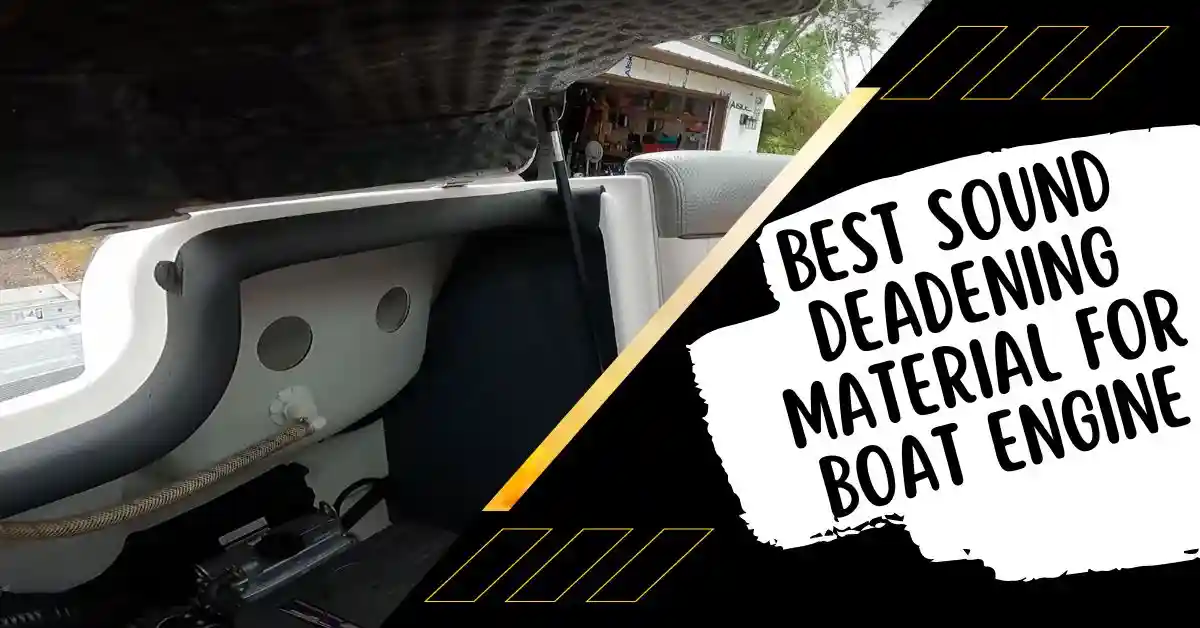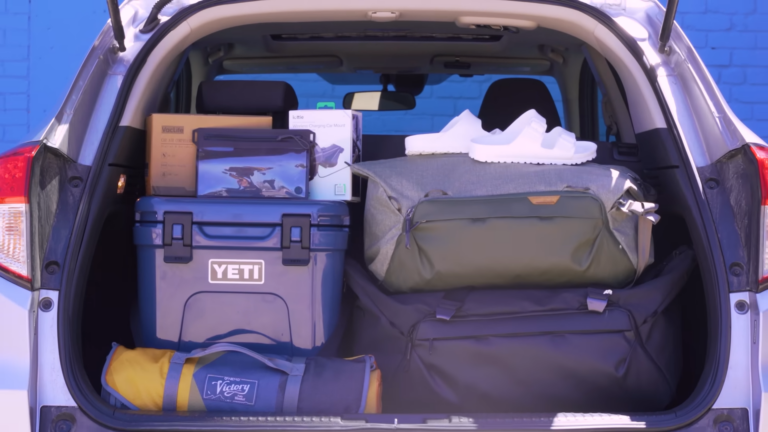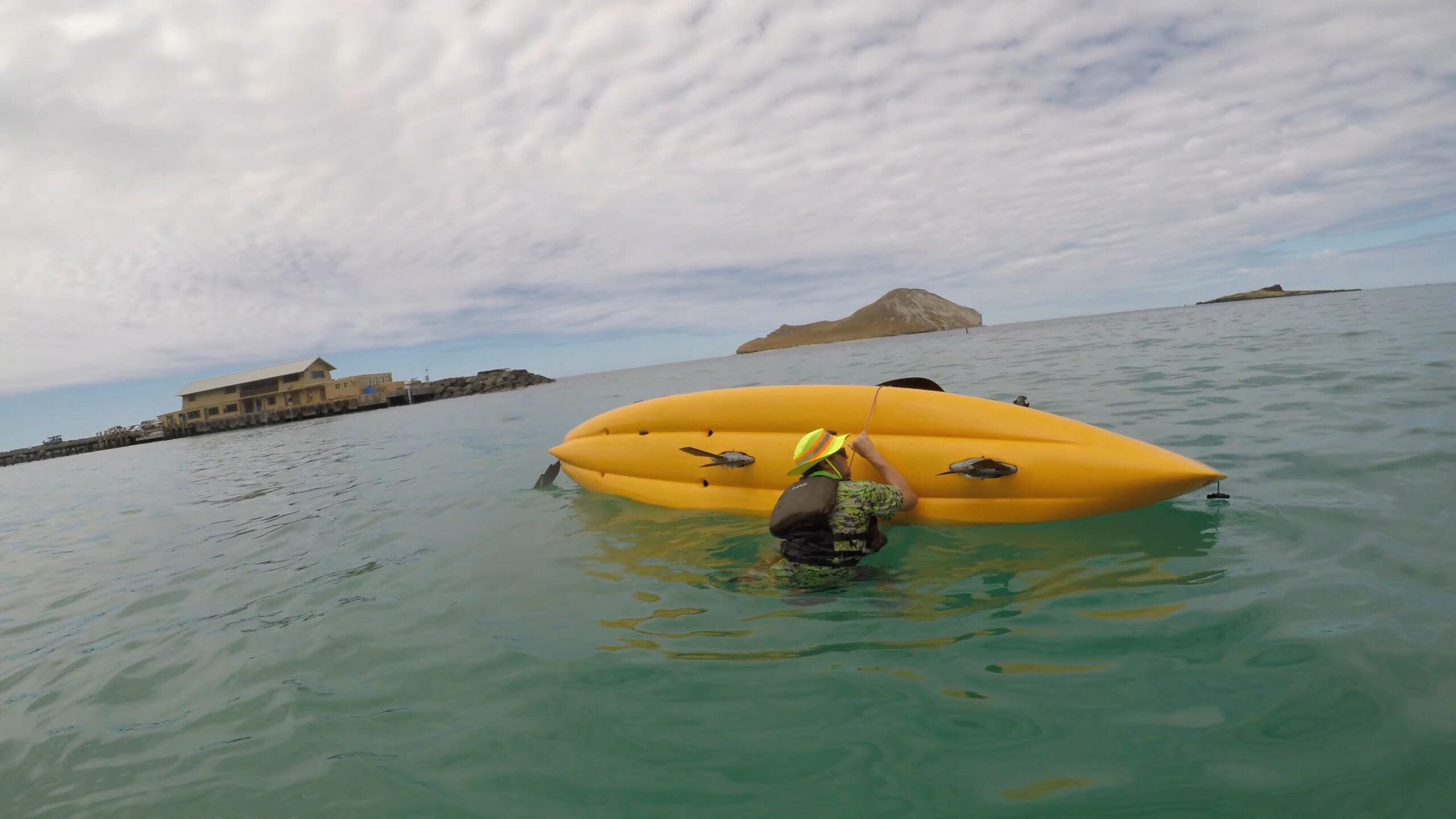Most persons who are well-versed in boat rides has heard the scary roar of a boat’s motor. An engine on a boat is the most typical cause of noise pollution.
There is a lot of background noise on boats.
Table of Contents
ToggleHow to Soundproof a Boat
If you purchased a boat to spend quality time with loved ones, a noisy motor or other disruptive sounds can greatly detract from the experience. Many boat owners complain about engine room noise disturbing conversations on the upper deck or in the cabin. Having to shout just to be heard is not the serene atmosphere they envisioned when they invested in their vessel.
Even when the boat is stationary, the generator or air conditioning system can create distracting and unpleasant sounds. The gentle sound of lapping water that is typically soothing can become a nuisance for those trying to sleep at night. Fortunately, Soundproof Cow offers a range of marine soundproofing products that can help create a peaceful and tranquil environment on board.
With Soundproof Cow’s marine soundproofing products, you can truly enjoy the peaceful and relaxing atmosphere that your boat was meant to provide. Don’t let disruptive noise ruin your time on the water – invest in soundproofing solutions that will help create the perfect environment for spending quality time with family and friends.
Now, you may want to know what is the best sound-deadening material for a boat engine.
Before purchasing a boat engine sound deadening, you need to consider a few factors. Price, brand, warranty, and functionality matter a lot. Spectrum liquid, mega zorbe could be a good choice. You can also count on radio static, hush mat, and second skin mega block. According to your requirements, you can use any of these.
You only know what the problem you are facing is. So, choose accordingly and read along all the details.
How to Choose the Right One Boat Engine Sound Deadening?
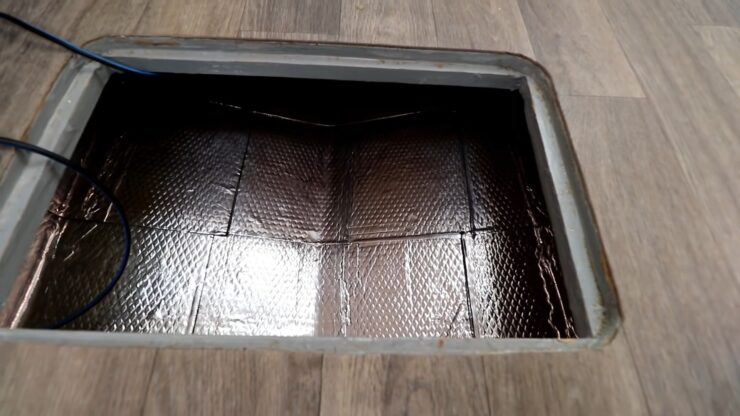
If you want to get sound-deadening items comparable to the best ones, you must consult a buyer’s guide. you need to follow similar factors to johnson outboard troubleshooting.
Before purchasing, you must satisfy specific criteria. Let’s investigate them:
- Price. If you want to find the best bargain, you will check the pricing first. Then, evaluate the prices other dealers offer and select the best one.
- Brand. When purchasing soundproofing, the second factor to consider is the brand. Find out the differences between brands so you can pick the best one.
- Warranty. The guarantee of sound deadening must also be considered. No one likes to shell out cash on something that won’t even last a month!
- Functionality. Prior to making a purchase, examine the soundproofing functionality of the greatest option. Checking the specifications is an easy way to accomplish this. Remember, the more extensive the specifications, the higher the functionality of your product.
- Size. You must know the size and dimensions of your soundproofing brush. Any improper fit renders the product worthless. Therefore, prior knowledge of the product’s size is advised.
- Color. Suppose you end up purchasing a soundproofing brush whose color is not to your liking. It would be equivalent to wasting money.
Consequently, you should record your color choices. Check later to see if the online store carries them.
Old Customer Evaluations
The majority of savvy buyers would do so. Verifying the product’s validity is a wise decision.
When you go down the website, you will find product reviews. Examining them will help determine which brand to choose.
5 Best Sound Deadening Material For Boat Engines
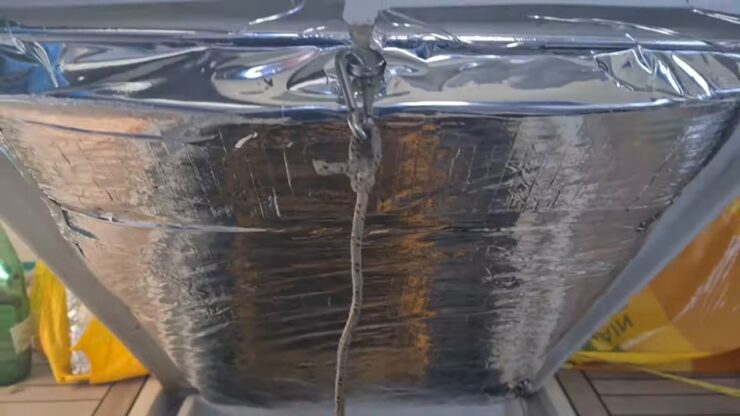
Here are some best sound-deadening materials for boat engines. You can select as per your choice. Carburetor troubleshooting can also this loud boat sound.
1. Spectrum Liquid Sound Deadening Spray and Paint
Spectrum liquid sound damping material is a high-heat and water-based viscoelastic polymer. It adheres to metal and dampens vibration. In addition, it quiets the shaking and the sounds.
The fact is that it can dampen vibrations and stabilize interior temperatures. it has led to its widespread use in motor vehicles. Found on vehicles, ships, and tractors made of metal.
Spectrum also works well with metal shelving units, subwoofer boxes, and HVAC ducts.
The eventual result of this is that vibrations will no longer occur. Sound waves in the air will not be blocked or absorbed, though. It can protect against fires up to 400 degrees Fahrenheit, making it useful as a barrier.
You can use either a paintbrush or roller with this paint when applying. Spectrum Liquid Deadener should be applied in two thin layers, each between 2 and 3 mm thick.
The maximum thickness allowed is 5 mm.
2. Mega Zorbe
Some need a sound absorber that is both fireproof and impervious to water. Go no further with the Mega Zorbe, made of hydrophobic melamine foam. It works wonderfully to dampen echo and enhance sound quality.
The engines on boats serve as thermal and acoustic barriers.
Do not forget to drop a Mega Zorbe in each door jamb and up on the roof, above the headliner.
If you’re looking to muffle the noise from your boat’s motor, consider the Damplifier Pro. Not to be squeezed or dropped on the floor.
Each open-cell foam panel is 24 inches square and 12 inches thick (4 sq ft). There are no fire, smoke, or toxicity issues while using Mega Zorbe in aircraft, transportation, or building applications.
Acoustic foam is the greatest material for dampening sound in the mid-to-high range. Sound travels right through foam.
On the other hand, it does reduce echoes and reverberations. Insulation for vehicles having an R-value per inch of 4.16 can tolerate heat up to 350 degrees Fahrenheit.
Additionally, sheets can be stacked to increase sound and heat insulation.
3. Radio Static
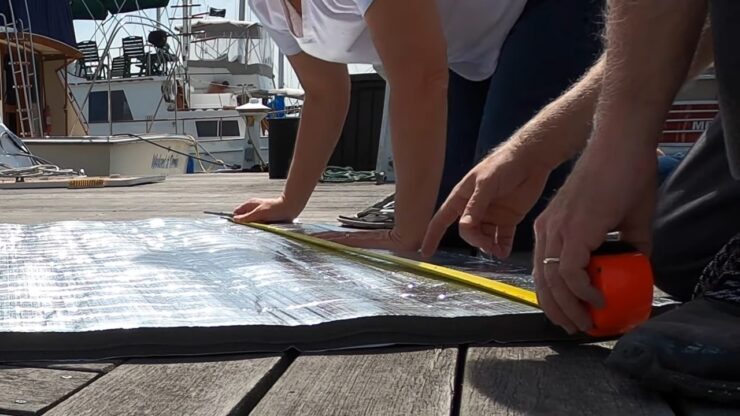
Radio static is similar to the liner’s characteristics and soundproofing qualities of rubber foam. This material is not the same as polyurethane foam and does not absorb moisture. It can withstand oil and gas without being weighed down.
This material works wonderfully as insulation for engine noise in boats. The soundproofing material makes it possible to endure extreme temperatures in either direction.
Particularly so in warmer climates. Boat driving in the utmost comfort is also ensured by the well-insulated cabin.
Don’t worry about your boat’s interior is too hot because of the liner heat shield material. The hood can be insulated with the liner as well. This self-adhesive backing is wonderful at retaining water and moisture, but it’s excessively pliable.
Nonetheless, it is simple to set up, manipulate, and shave down to size.
4. HushMat HSM30300 1″” x 20′ Quiet Tape Shop Roll, Regular
This one decreases noise, shaking, and wear & tear. To secure various cables, harnesses, and wires, HushMat quiet tape is frequently employed. You need to peel and stick it.
HushMat’s innovative adhesive technology makes it an indispensable tool. The tape’s adhesive properties even hold up after being unwound and reused. Ultimately, you’ll throw away three times as much tape as you had originally. In terms of mass, this stuff clocks in at 3.2 ounces.
5. Second-skin mega-block melamine sound-absorbing foam
Aluminum foil-faced fiberglass fabric is 98% reflective. And covers a second-skin mega-block of melamine soundproofing foam. It has a pressure-sensitive adhesive backing.
Water, solvents, microbes, and heat resistance have all been incorporated into this open-cell foam.
Therefore, it is watertight and resistant to heat up to 1000 degrees Fahrenheit. It conforms to smoke, fire, and toxicity laws.
Open cell foam is an excellent choice for dampening both mid- and high-frequency noise in a boat. The average weight of a 4 square foot (2 by 2) sheet of melamine foam is about 1/8 of a pound.
Heat shield insulator of aircraft quality, Mega Block.
It has an R-value of 4.16 per inch, making it an effective radiant heat barrier while also dampening engine noise. High-quality melamine foam is produced in Germany and then treated and coated in the United States.
It is to provide an efficient and innovative boat solution. Mega’Block foam complies with or exceeds national and international fire safety standards and is impervious to most organic solvents.
Benefits of Boat Soundproofing
Boating is a great way to promote both physical and mental well-being. According to research, being on or near water has a calming effect on the mind and body, inducing feelings of peace, calm, and happiness. It also triggers the release of dopamine and serotonin – chemicals that promote positive feelings and help reduce stress levels. In fact, 72% of Americans feel healthier after spending time on the water, which may be one reason why millions of Americans enjoy boating every year.
However, excessive noise on a boat can negate the therapeutic benefits of being on the water. If you and your passengers find the noise level to be overwhelming and stressful, it’s time to consider soundproofing your boat. By using boat soundproofing materials, you can enhance sound quality, reduce noise, and fully enjoy the benefits of cruising on the water.
- Increased hearing safety is one of the main benefits of boat soundproofing. Boat engines can produce noise levels exceeding 100 decibels (dB), which is considered dangerous. Sounds above 85 dB can cause hearing loss over time, and the risk of damage increases with higher dB levels. If you have to raise your voice or cannot hear someone standing three feet away, it’s time to consider reducing noise to protect your hearing.
- In addition to hearing safety, boat soundproofing can also improve operational safety. Loud noise can be distracting and drown out important sounds, such as smoke detectors, which emit 85 dB. By soundproofing the engine compartment, you can maintain safe noise levels and hear alarms clearly, no matter where you are on the boat.
- Reduced noise-related stress is another benefit of boat soundproofing. Studies have found that exposure to annoying noise can increase depression and anxiety, trigger the body’s stress response, and even lead to a higher risk of heart disease and high blood pressure. A 10 dB increase in noise can have a negative impact on mental health, making it important to reduce noise and enjoy a more peaceful boating experience.
- Improved insulation is another advantage of boat soundproofing. Soundproofing materials such as wool and fiberglass can help insulate the boat and keep it cool in the summer and warm in the winter, allowing for year-round enjoyment.
- Quieter water for sea life is also a benefit of boat soundproofing. Excessive noise can disrupt marine life, interfering with communication and other essential behaviors. By reducing noise levels with soundproofing, you can cruise along without disturbing marine life as much and help protect the environment.
- Finally, boat soundproofing can help ensure compliance with state regulations on noise levels. Some states have specific noise level limits for motorboats, and soundproofing can help keep your boat in line with these regulations and avoid complaints from other boaters in state parks.
What Parts Need Soundproofing?
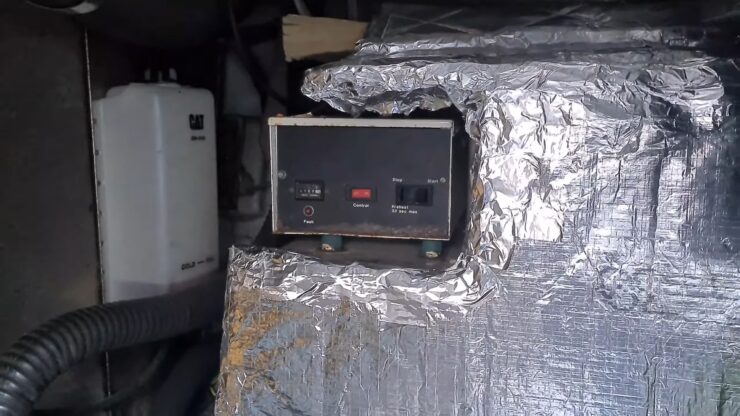
Soundproofing is necessary for several areas of a boat, including the engine room, generator, air conditioning unit, and cabin. Excessive noise from these components can disrupt the boating experience, making it difficult to communicate and relax.
Materials can be applied to the walls, ceiling, and floor of these areas to reduce noise levels and create a more comfortable atmosphere. Additionally, soundproofing can help to protect the hearing of passengers and maintain operational and environmental safety on the boat.
Boat Engine Soundproofing
If you’ve ever spent any time on a boat, you know the sound of the engine can be extremely loud and is likely the greatest source of sound in your boat. There is a tremendous amount of vibration noise due to the action of the engine reflected by the metal frame of the boat.
The result is that guests on your boat often need to shout to be heard, and you and your fellow boat passengers could even be sustaining long-term hearing damage without even realizing it.
FAQs
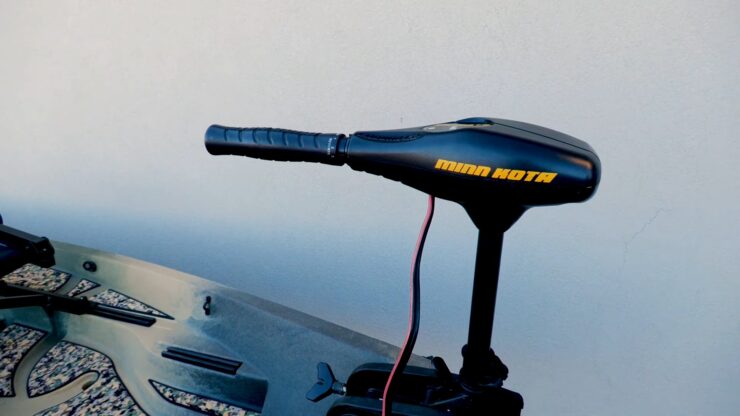
How do you reduce engine noise in a boat?
To reduce engine noise in a boat, there are several methods that can be employed. One of the most effective methods is to install sound-absorbing materials, such as foam, mass loaded vinyl, and barrier mats, in the engine compartment, walls, and floors. Regular engine maintenance, such as changing the oil, cleaning air filters, and tightening loose parts, can also help to reduce engine noise by improving its efficiency.
Installing silencers or mufflers on the exhaust system can significantly reduce noise levels. Anti-vibration mounts can also help to reduce engine noise by minimizing the transfer of engine vibration to the boat’s structure. Upgrading to a more modern and efficient engine with lower noise levels is another option.
How do you soundproof an outboard motor?
An elevated dampening foam border can assist you in reducing noise by up to 35 decibels. Use a dampening sealant or adhesive to affix panel seams together tightly and stop sound from leaking.
How can I make my aluminum boat quieter?
Making an aluminum boat quieter, there are several effective methods that can be employed. One of the most effective methods is to install sound-deadening materials like mass loaded vinyl, foam, and insulation on the interior surfaces of the boat to reduce the transfer of sound waves.
Carpets and rugs can also be added to help absorb sound and reduce the amount of noise that bounces around inside the boat. Anti-vibration pads can be installed under engines and other equipment to reduce the amount of vibration transferred to the boat’s structure.
Upgrading to newer, quieter equipment is another option that can help reduce noise levels. Finally, going slower can also reduce noise levels, as high speeds can create more noise and vibrations.
Is fiberglass or foam better for soundproofing?
Both fiberglass and foam can be effective for soundproofing, but they have different characteristics and are used in different ways.
Fiberglass is an excellent sound absorber due to its density and composition. It works by trapping sound waves and preventing them from bouncing around a room or a boat. It can be used as an insulation material in walls, ceilings, and floors to reduce noise levels. However, fiberglass can be itchy and uncomfortable to work with, and it can also release harmful particles into the air if not properly handled.
Foam, on the other hand, is a good sound blocker. It works by preventing sound waves from passing through a material or a structure. Foam can be applied to walls, floors, and ceilings to block noise from entering or leaving a room or a boat. It is also easy to work with and can be cut to size for specific applications. However, foam is not as effective at absorbing sound as fiberglass, and it may deteriorate over time due to exposure to sunlight and moisture.
Bottom Line
Hope, you got all the details about the best sound-deadening material for the boat engine.
Sometimes, the awkward sound you hear might not be the only reason. So, look thoroughly. To summarize, the few goods that can reduce engine noise include spritz, polyurethane board, and paint.
Happy riding!
I’m Liam Jackson, the proud owner and driving force behind KayakPaddling.net. Born somewhere in the expansive beauty of the United States, I’ve nurtured a lifelong passion for kayaking and fishing that has led me to explore the far corners of our nation’s waterways.
Related Posts:
- Exceeding Max HP Rating on Boat: All You Need to Know!
- Livingston Boat Modifications: Things You Can Add
- How Wide is A Boat Trailer - Facts to Reveal
- 10 Best Saltwater Fishing Boats - Ultimate Angling Adventure
- Replace the Boat Carpet With a Non-slip One - Best Options
- 10 Best Aluminum Boat Keel Protector 2024 -…

